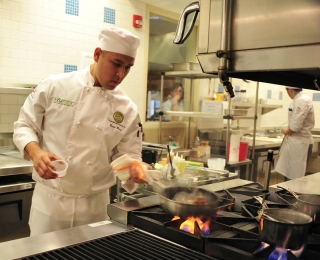
Utah Valley University Graduate Named Best Young Chef in All The Americas
Saturday, 02 January 2016 11:59Victor Hugo Perez won the prestigious Hans Bueschkens Young Chef Challenge in Quito, Ecuador. He now competes for the world title in Athens, Greece.




